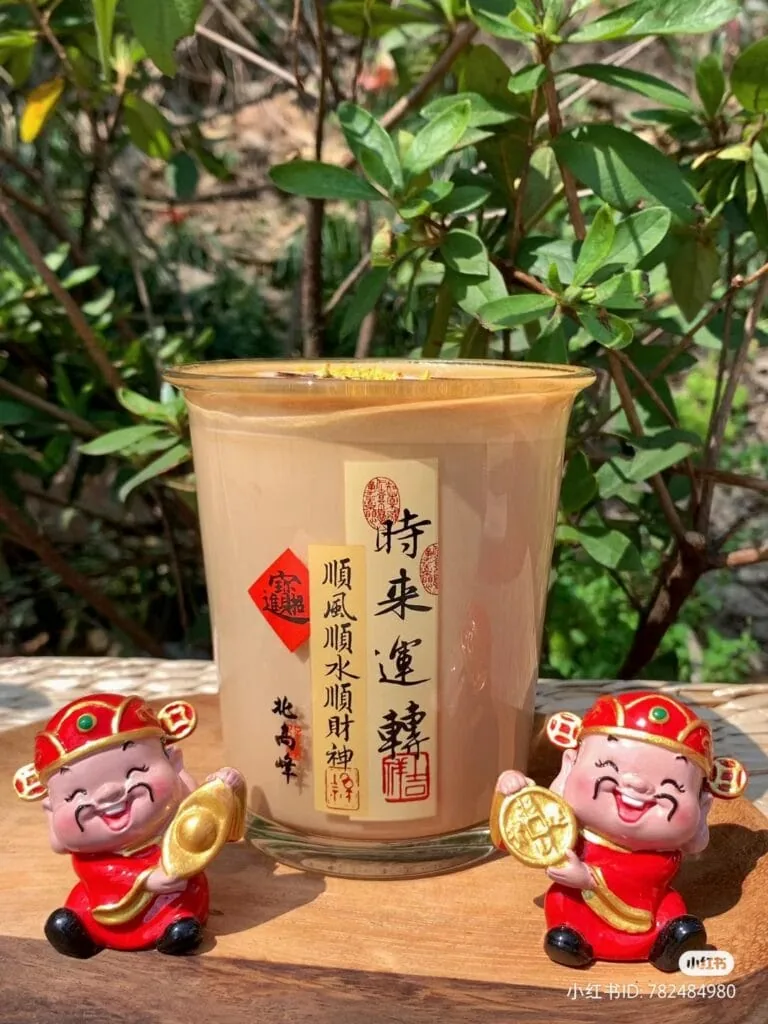The combination of temples and cafés might sound out of place, but temple coffee has become a rising trend among the younger demographic in China, writes Qing Na from Dao Insights
From Cibei (Mercy) Coffee in Yongfu Temple, to Muhuanxi (Bathe in Happiness) in Faxi Temple in Hangzhou, to Jianfo (Meet the Buddha) Coffee in Longxing Temple in Taizhou, temples seem to have become a standard setting for coffee shops in China.
It’s not just the names of these outlets that gives a nod to their zen ambiance; their coffee offerings do, too. At Cibei Coffee, for example, an Americano is known as Di Fan (Wash Worries Out), the latte has been replaced by Ting Xue (Snow Stops) and Huan Xi (Happiness) refers to a mocha. A blind box offer called Sui Yuan (Let It Be) has also been introduced, where consumers are invited to draw a fortune stick, a common practice during a temple visit.
The rise of temple coffee is closely linked to the new-found popularity of temple visits among younger people in China, with Gen Z and Millennials becoming some of the most devout worshippers after China dropped its stringent Covid rules. It has been reported that bookings for temple-based scenic areas recorded a more than three-fold increase year on year since the beginning of 2023. The post-90s and post-00s generations also accounted for nearly 50% of the total temple footfall in February according to Chinese online travel agency Ctrip.
Burning incense and praying to Buddha are particularly popular among Gen Z, with the topic of ‘Temples’ on China’s lifestyle-sharing platform Xiaohongshu drawing in more than 160 million views, plus another 100 million reads of the hashtag ‘Pray in Temples’. Shared posts under these tags often include wishes about finding the right partner, passing exams or securing university or job offers.
Temple coffee shops have won over young consumers with their “sharp contrast” between Eastern religion and the Western origin of coffee, arousing curiosity among a generation always looking for new and unique consumer experiences. The presence of monks at a café, some even working as baristas, also appeals to young visitors. What’s more, these scenes of course create great photo opportunities, generating online engagement while fanning overall enthusiasm for the trend.
This latest temple coffee trend stands in stark contrast to a similar attempt by Starbucks in 2012. The opening of the American chain’s outlet near Hangzhou’s Lingying Temple turned into a controversial episode, with some viewing the move as being “too commercial” and “incompatible” with the sacred nature of the monastery, while others even argued that it was “an erosion of Chinese culture”.
The success of temple coffee today lies in a more detail-oriented re-packaging and marketing approach. Temple coffee can’t just rely on the simple installation of a coffee shop within a temple; it also requires comprehensive branding that integrates religious aspects, aesthetics and the spiritual and psychological demands of temple goers.
Examples include Money God Coffee at the God of Wealth Temple in Hangzhou, whose niche is offering caffeinated drinks symbolising wealth, while Xi De (“Happiness and Morality”) in Lingying Temple focuses on good luck in education and careers. These curated experiences are synonymous with the characteristics of each temple, which shows respect for religious culture while also enhancing an immersive consumer experience.
The success of these coffeehouses sets an example of how religious or cultural venues can create another avenue for differentiation through marketing. While setting themselves apart from traditional coffee providers by leveraging the seemingly contradicting image of “West meets East”, they are able to tap into different spiritual demands, enhancing their own uniqueness while speaking to consumers’ emotional needs, which is key to further unleashing the consumption potential of China’s coffee market.





